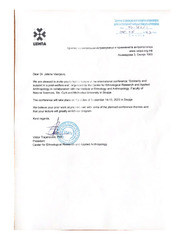| dc.description.abstract | Attempts at defining solidarity inevitably face the following challenges (and possibly many more): 1) What is the “proper slot” for solidarity on the continuum from empathy to cooperation and mutual aid? 2) Are we discussing the same phenomenon when describing intra-group solidarity, in¬ter-group solidarity, communal solidarity, or international humanitarian solidarity (in what sense does the scale matter)? 3) Is it part of our biological predisposition (an evolutionary trait) or is it true that solidarity will not emerge spontaneously from social processes but can only be built (or eroded) through political action?
For this reason, solidarity is typically approached through strategies of differentiation and classification. Efforts are made to distinguish between social, civic, and political solidarity, or inter- and intra-group solidarity; or to argue for the difference between solidary attitudes and emotions on the one hand, and behaviour and collective action on the other. In my presentation, I will argue that the distinctive feature of solidarity, as a form of prosocial behaviour, is that it is constitutive of political communities. In particular, I will try to define solidarity through its historical and ontological relevance to citizenship.
I build on scholarship emphasizing the political nature of solidarity (Scholz), as “a principle that can inspire and guide action” (Arendt), as an ongoing commitment to “a community of interests, shared beliefs and goals” (hooks), “based on we-thinking” where “the target of concern” is “us together” rather than the wellbeing of the other (Laitinen and Pessi). I will also point to the fact that discourses and practices of solidarity play an important yet ambiguous role in any citizenship regime. It can promote interdependence and full inclusion, while at the same time solidifying the exclusionary “we” through the “destructive solidarity of us-against-them” (Sennett). The ambiguous role of solidarity, I argue, becomes especially obvious today, in neoliberal regimes, where calls for solidarity can be deployed to foster very distinct, arguably mutually opposing, kinds of political subjectivities and citizen activism. | sr |

